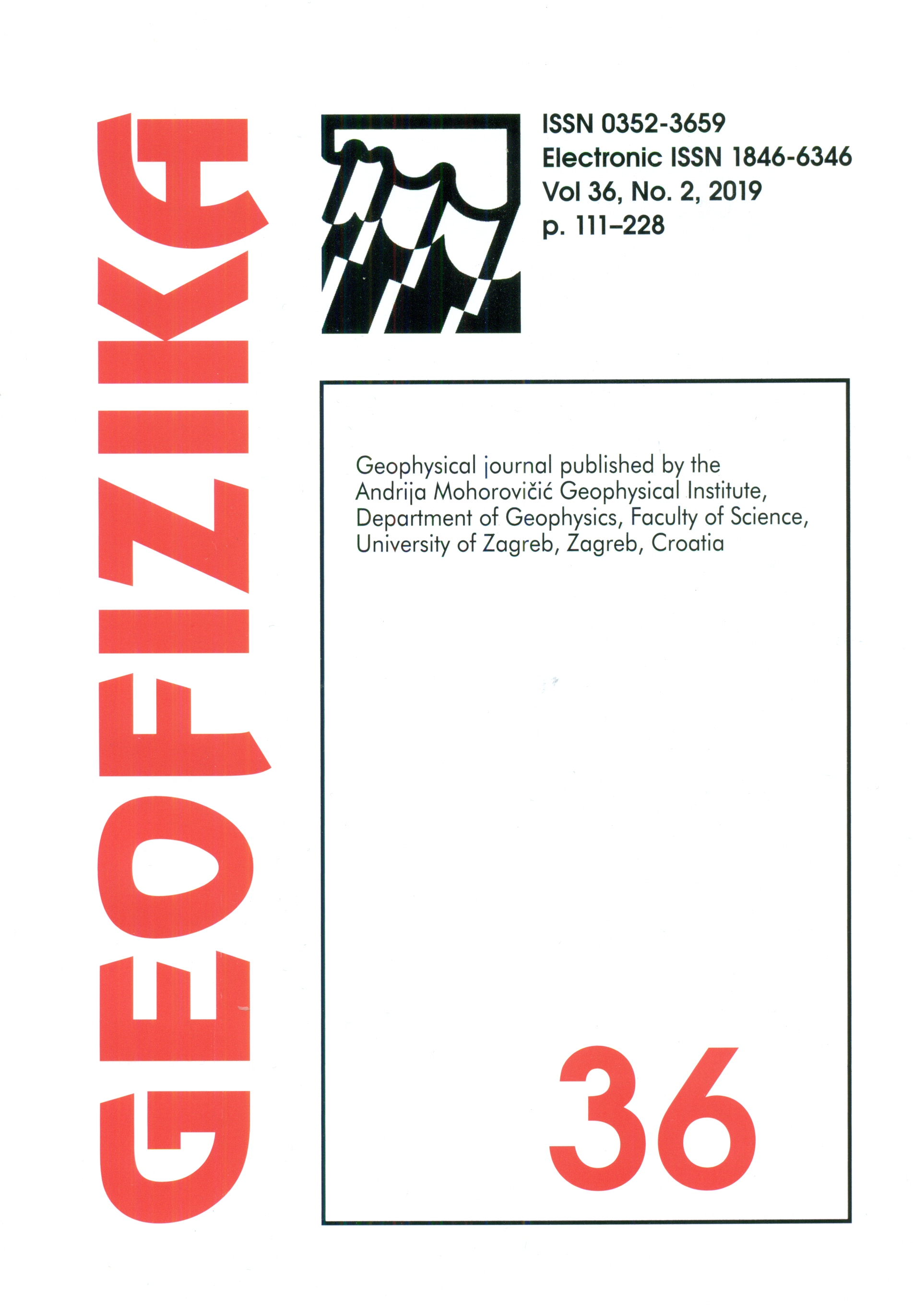Fractal analysis of seismoacoustic signals of near-surface sedimentary rocks in Kamchatka
DOI:
https://doi.org/10.15233/gfz.2019.36.15Keywords:
seismoacoustic signal, monofractal, Hurst exponent, multifractal, detrended fluctuation analysisAbstract
We studied, by the mono- and multifractal detrended fluctuation analysis (DFA), time fluctuations in the dynamics of seismoacoustic data, recorded in Karymshina site, which is located in a seismic area of Kamchatka. We took a series of seismoacoustic responses to the regional seismic events with the magnitudes M>4 for the period 2017-2018. The series was divided into three groups (high, medium and low) based on the amplitude of recorded seismoacoustic response. Background noise segments of the signals demonstrated monofractal behavior similar to white noise by almost constant values of generalized Hurst exponent Hq≈0.5 and very small width of the multifractal spectrum Δα≈0.1. Analysis of the high amplitude seismoacoustic signals with clear P-, S- and coda waves showed that P- and S-waves demonstrate wider multifractal spectrum (ΔαP=0.37, ΔαS=0.35) and range of generalized Hurst exponents Hq in comparison with coda wave, characterized by almost constant Hq and minimal width of multifractal spectrum (ΔαCODA=0.13). We showed that the properties of the multifractal spectrum could be used in detection of seismic wave arrival, estimation its duration and separation of P-, S- and coda waves. Application of the monofractal DFA in a sliding window showed that the acoustic signal transits from monofractal and uncorrelated background noise (Hurst exponent equals to 0.5) into the long-range dependent state during seismic waves arrival, that is helpful in analysis of the signals, particularly in case of low amplitude acoustic responses, usually demonstrating an unclear waveform. Difference in multifractal spectrum width between the original low amplitude signal and its surrogates, obtained by random shuffling showed that the multifractality in the signal is dominantly due to long-range correlations.
Downloads
Published
Issue
Section
License
Copyright (c) 2021 Geofizika journal

This work is licensed under a Creative Commons Attribution-NonCommercial 4.0 International License.

